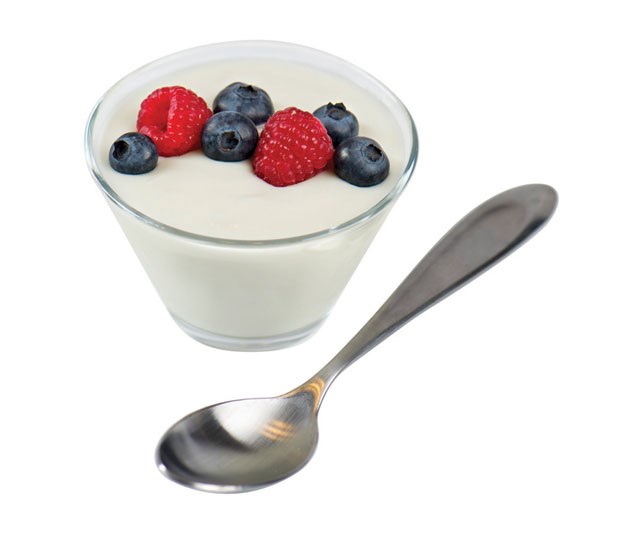Have you ever started a workout feeling so awesome, yet 15 to 20 minutes in you begin to feel nauseous and drained of energy?
Or perhaps you got halfway through your fitness class only to all of a sudden crash and burn, hands shaking, dizzy and feeling sick.
I have been training people for over 20 years now and I have seen it all. And while exercise may be the pin that popped the balloon, so to speak, the main culprit that led that pin to the balloon is usually how the person fuelled their body before their workout.
First a quick (and basic) physiology lesson: From the moment you put food in your mouth, it is being digested.
A carbohydrate-rich food (such as bread, cereal, fruit) breaks down as simple sugars for your muscles to start using for fuel.
A protein-rich food (such as Greek yogurt, meat, beans) is used to build and repair the body tissues. And a food high in fat is dissolved first in the intestinal cavity and then carried on from there (like our veins and arteries if we aren’t careful).
Each macronutrient is important for good health, however when it comes to exercise, there are two that reign, and a surprise that has science scratching its head.
First, it is generally recommended (to properly fuel your body before a workout) to eat a food that has both carbohydrates and protein. The carbs will help fuel your muscles and the protein will help with recovery.
This could be as simple as yogurt and berries, or a hard-boiled egg and an apple.
For workouts that are strength-based (like weights, circuits, boot camp), aim for a snack at least 45 to 60 minutes beforehand. Look for 20 to 25 grams of carbohydrates and 10 to 18 grams of protein.
Play around with that as I know of a lot of people who need closer to 90 minutes to digest. Find what feels best for you.
A couple of things to watch out for are nausea and dizziness. If you start to feel nauseous during your workout, chances are you ate too close to your session. If you begin to feel dizzy, or light headed, you ate too early.
Long cardio workouts (like training for a marathon) need a higher carb ratio and should be eaten at least 45 minutes before you lace up your runners. You need to give the food enough time for the glucose to breakdown and hit the blood steam, so when your runners hit the pavement, you are fuelled and ready to go.
Cardio workouts that are under an hour don’t really need a snack, providing you are eating properly throughout the day.
And the latest research and buzz in the gym? Cardio workouts in a fasted state. These are workouts that are done on an empty stomach and are gaining in popularity.
Research is now suggesting that if you’re trying to lose weight, doing a cardio workout in a fasted state (as soon as you get up in the morning) allows you to burn more fat.
First thing in the morning, after fasting all night, your body’s natural hormones have the perfect profile for fat loss. Your insulin levels are low, your blood sugar is low (forcing the body to draw on its fat reserves) and your growth hormone levels are at the highest they will ever be when awake.
All of this makes for the perfect fat-loss storm. But there are many experts that disagree and urge people to work out with something in their stomach.
Fasted cardio training is new and will need time to pan out with science.
My advice is to do whatever will make you work out.
I do at least twice a week cardio workouts fasted. It works for me. I also know of a lot of other people who just prefer an empty stomach for the simple fact that a workout feels better without food sloshing around in the gut.
If you are hypoglycemic, new to exercise or just not interested in adding any more torture to the whole workout thing, then heed the recommendations of a light snack beforehand.
Bottom line is keep moving and keep moving daily — with or without a snack.
PJ Wren is a local personal trainer and writer who specializes in over-40 fitness. She can be reached at www.fitnesswithpj.com.



